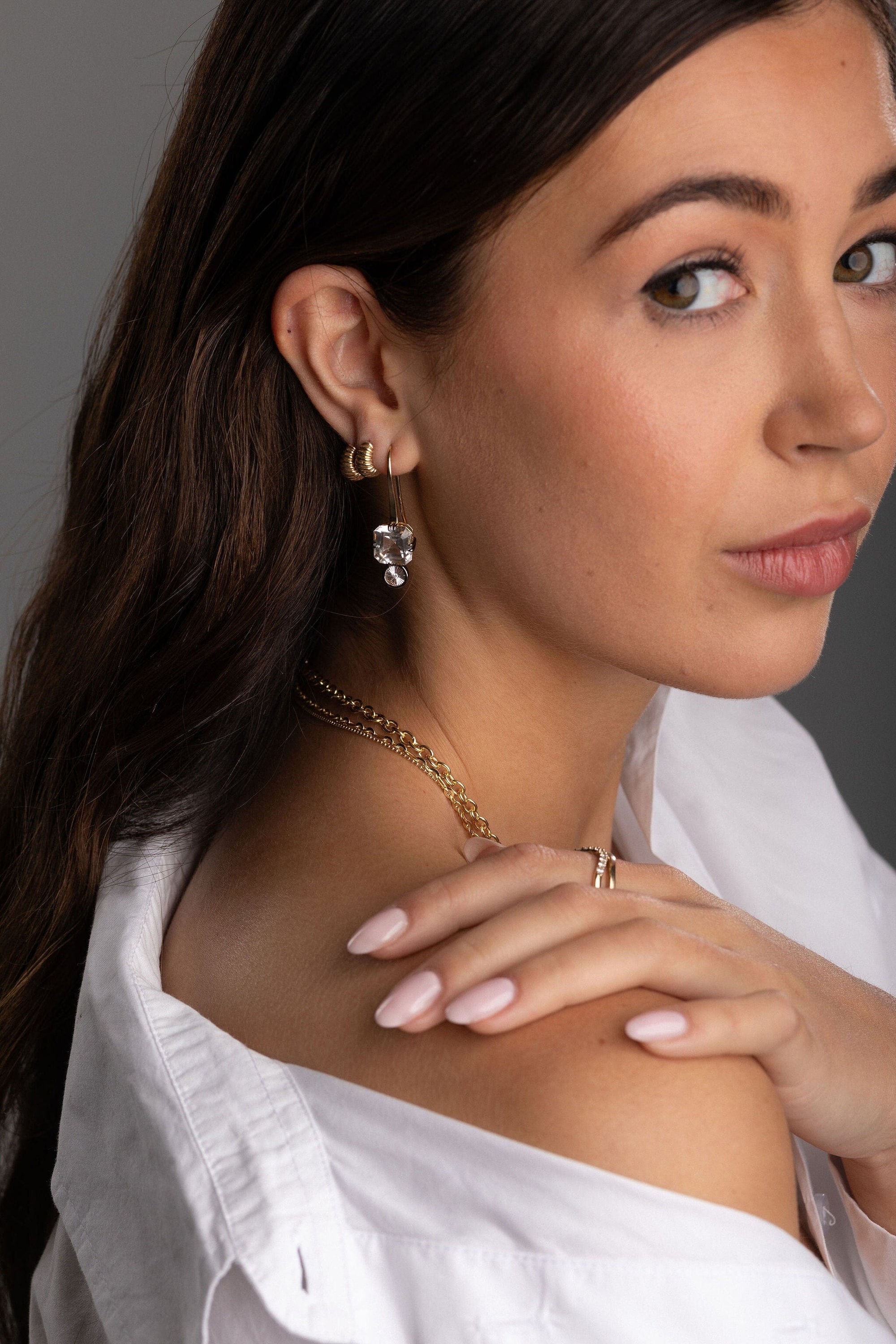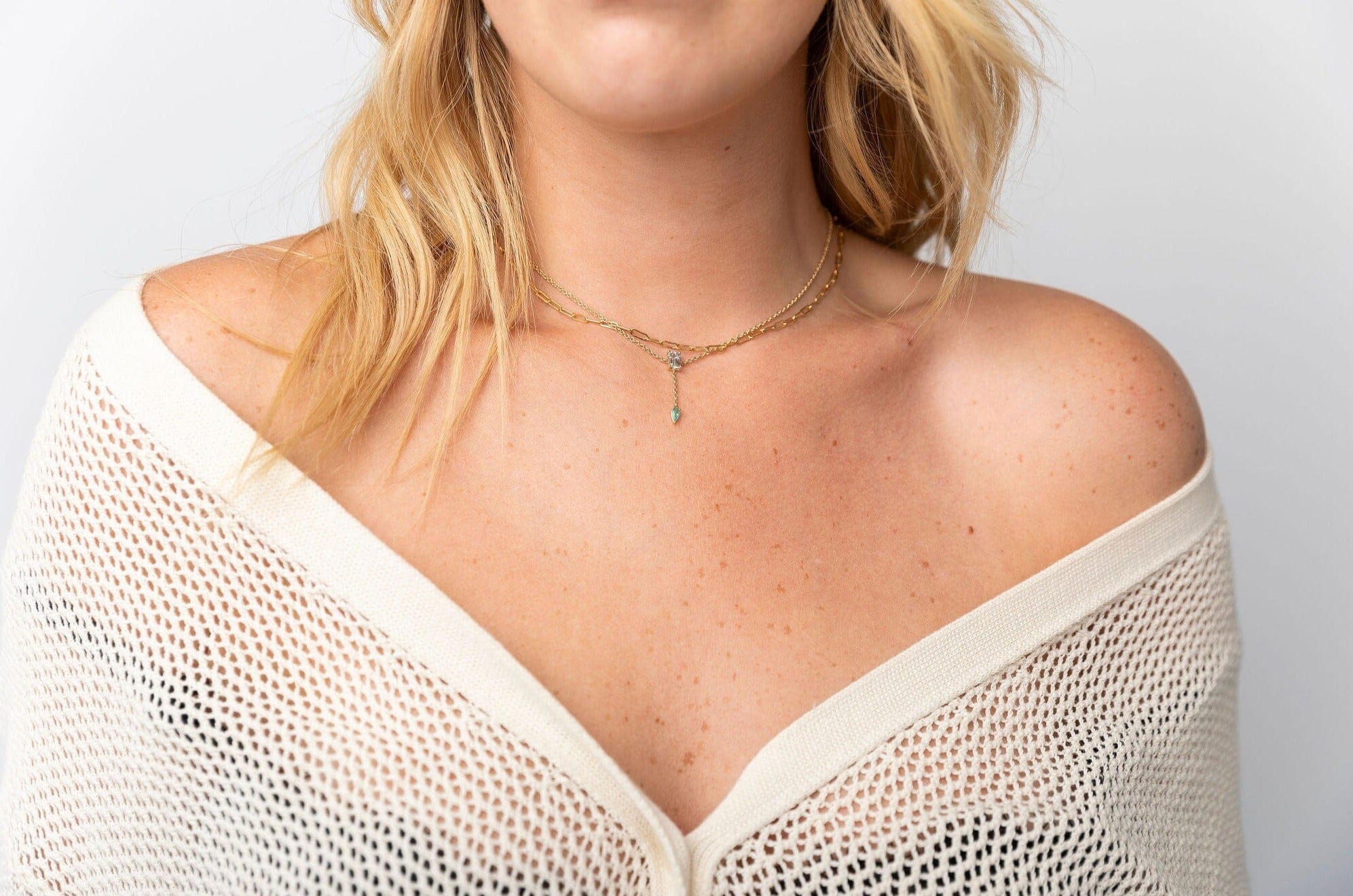Introduction
Jewelry is a beautiful way to express your style, personality, and spirit. However, for those with sensitive skins, jewelry can sometimes be more of an irritant than an accessory. Hypoallergenic jewelry offers a solution, allowing everyone to enjoy their favorite pieces without discomfort. In this guide, we’ll explore everything you need to know about hypoallergenic jewelry, including the best metals for sensitive skin, tips for buying and caring for your jewelry, and practical advice for wearing jewelry with sensitive skin.

What is Hypoallergenic Jewelry?
Hypoallergenic jewelry is crafted from metals that are less likely to cause an allergic reaction. The term "hypoallergenic" has gained popularity, especially among jewelry metals, as a marker of safety for sensitive skins. These pieces are typically made without nickel, the most common culprit of metal allergies. However, hypoallergenic jewelry can also mean that the nickel content is below minimal levels and unlikely to cause a problem.
Common Metal Allergies
Not all metals cause allergic reactions, but some are more likely to irritate sensitive skin. Here are a few common allergens:
Nickel: Nickel allergies are the most common and cause reactions like redness, itching, and blistering. Nickel breaks down into a type of salt when exposed to water or sweat, which can irritate the skin.

Copper: While often hypoallergenic, copper is a soft metal and can be reinforced with nickel, which may cause a reaction.
Lead: Even small amounts of lead in metal alloys can cause severe allergic reactions and other health issues.
Brass: Brass often contains alloyed copper, zinc, or nickel and is not hypoallergenic, causing reactions in many people.
For more detailed information on metal allergies, you can refer to reputable dermatology sources such as the American Academy of Dermatology.

Understanding Nickel Allergy
A nickel allergy can cause various symptoms, including redness, tenderness, dry patches, or blisters where the skin comes into contact with nickel. This is particularly common with earrings, as earlobes have thin and sensitive skin. Approximately 15% of females and 2% of males have a nickel allergy, making it important to choose jewelry carefully. Nickel can also be found in everyday items like keys, door knobs, and buttons, increasing the risk of developing a sensitivity over time.
The Best Metals for Hypoallergenic Jewelry
Choosing the right metal is crucial for avoiding allergic reactions. Here are some of the best hypoallergenic metals:
Sterling Silver: Sterling silver is at least 92.5% pure silver, with the remaining 7.5% usually being copper or other metals. It is generally safe for sensitive skins. Look for the "925" stamp to ensure its authenticity. Avoid silver-plated items, which can have a base of brass or other alloys.

Gold: Pure 24k gold is hypoallergenic but too soft for jewelry. 14k and 18k gold are more durable and still suitable for sensitive skins. Rose gold, made with pure gold and copper, is also hypoallergenic.
Platinum and Palladium: These metals are hypoallergenic and less likely to cause a reaction. Platinum is particularly durable, while palladium offers a more affordable option with similar benefits.
Rhodium-Plated Jewelry: Rhodium is a lustrous, high-quality metal that contains no nickel. Rhodium-plated sterling silver is a great hypoallergenic choice, though the plating can wear off over time.
Titanium: Titanium is hypoallergenic and extremely durable, making it ideal for everyday wear, especially for hypoallergenic earrings titanium.
Stainless Steel: While not entirely hypoallergenic, stainless steel with low nickel content (such as XC45 or 430 stainless) can be a good option for those with mild sensitivities.
Buying Hypoallergenic Jewelry
When buying hypoallergenic jewelry, it's important to check the metal content and look for certifications. Here are some tips:
Check Labels: Look for labels indicating "nickel-free" or "hypoallergenic." However, remember that some "nickel-free" items may still contain trace amounts of nickel.
Ask for Certifications: Some jewelry pieces come with certifications indicating they meet specific standards, such as the EU Nickel Directive.

Avoid Plated Jewelry: Opt for pure metals or alloys known to be hypoallergenic. Silver-plated or gold-plated items can have a base of nickel or brass, which might cause a reaction.
Caring for Hypoallergenic Jewelry
Proper care and maintenance can extend the life of your hypoallergenic jewelry and keep it safe for your sensitive skin. Here are some tips:
Regular Cleaning: Clean your jewelry regularly to remove any potential irritants like sweat or lotions. Use mild soap and water, and avoid harsh chemicals.
Proper Storage: Store your jewelry in a dry, cool place to prevent tarnishing and oxidation. Use individual pouches or boxes to avoid scratching.
Avoid Water Exposure: Remove your jewelry before swimming, showering, or exercising to prevent corrosion and maintain its luster.

Hypoallergenic Earrings for Newly Pierced Ears
Hypoallergenic Earrings for Newly Pierced EarsWhen you have newly pierced ears, choosing the right earrings is crucial to avoid irritation and promote healing. Hypoallergenic earrings for newly pierced ears are made from metals that are less likely to cause an allergic reaction.
Here are some top choices:
Titanium: Titanium earrings are an excellent option for newly pierced ears because they are hypoallergenic and extremely durable. They are also lightweight and comfortable to wear.
Surgical Stainless Steel: This type of stainless steel has a low nickel content and is often used in medical implants, making it a safe choice for new piercings.
14k or 18k Gold: Higher karat gold earrings contain less nickel and are generally safe for new piercings. However, ensure the gold is not mixed with any metal that might cause a reaction.
Sterling Silver: While not as common for new piercings, sterling silver can be an option if it is marked as "nickel-free."

Hypoallergenic Necklace Chains
For those with sensitive skin, hypoallergenic necklace chains are a great option to avoid irritation around the neck. Some of the best materials for hypoallergenic necklace chains include:
Sterling Silver: Ensure it is marked as "nickel-free" to avoid any reactions.
Titanium: Lightweight, durable, and completely hypoallergenic.
Platinum: A luxurious and hypoallergenic option, though more expensive.
Gold: Opt for higher karats like 14k or 18k and ensure it is free from nickel.

Hypoallergenic Earrings Hoops
Hypoallergenic earrings hoops are stylish and safe for sensitive skin. When choosing hoop earrings, consider these materials:
Rhodium-Plated Sterling Silver: Provides a shiny finish and protects against nickel.
Titanium: Durable and completely hypoallergenic, perfect for everyday wear.
14k or 18k Gold: Ensure they are nickel-free to prevent any allergic reactions.
Does Sterling Silver Contain Nickel?
Sterling silver is typically a safe choice for sensitive skin, as it’s composed of 92.5% pure silver, with the remaining 7.5% usually made up of copper, which is generally non-reactive. However, some lower-quality sterling silver pieces may contain nickel as a cost-saving measure, which can trigger reactions in people with allergies. To avoid this, look for sterling silver marked with the "925" stamp, indicating its purity, and confirm with the jeweler that the piece is nickel-free. Avoid silver-plated jewelry, as the base metal can sometimes be nickel, which may become exposed as the plating wears down over time.

Tips for Wearing Jewelry with Sensitive Skin
Here are some practical tips to minimize allergic reactions when wearing jewelry:
Protect Your Skin: Apply a thin layer of clear nail polish to the parts of the jewelry that come into contact with your skin. This can act as a barrier against allergens.
Rotate Your Jewelry: Avoid wearing the same piece every day to give your skin a break and reduce the risk of irritation.
Consult a Dermatologist: If you experience persistent reactions, see a dermatologist to determine the exact cause and get personalized advice.

Conclusion
Choosing hypoallergenic jewelry is essential for those with sensitive skin. By understanding the best metals and following our tips, you can enjoy beautiful jewelry without the discomfort of allergic reactions. Explore Bondeye Jewelry’s collections to find stunning pieces that are kind to your skin.


